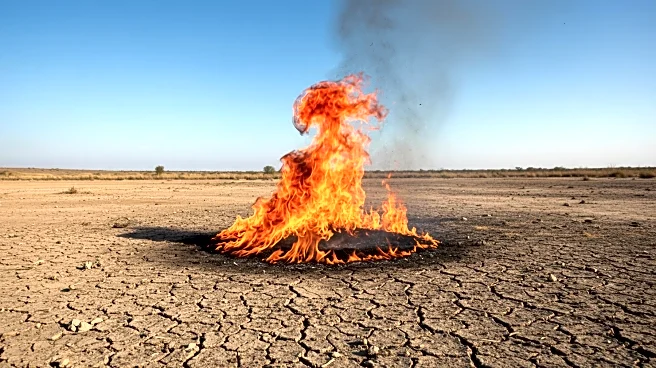What's Happening?
Spain is currently battling one of its most destructive wildfire seasons in recent decades, despite a drop in temperatures across the Iberian Peninsula. The fires have burned over 382,000 hectares, killing four people this year. Many of these fires have been attributed to human activity, with 23 individuals detained for suspected arson and 89 more under investigation. Firefighting units from Germany have been deployed to assist in controlling the blazes, particularly in the Extremadura region. Spanish Prime Minister Pedro Sánchez visited affected areas, highlighting the role of climate change in exacerbating the situation.
Why It's Important?
The wildfires in Spain highlight the increasing impact of climate change on natural disasters, with rising temperatures and prolonged heatwaves contributing to the severity of such events. The destruction of vast areas of land poses significant challenges to local communities, agriculture, and biodiversity. The involvement of international firefighting units underscores the scale of the crisis and the need for collaborative efforts in disaster management. The situation also raises questions about land management practices and the need for proactive measures to mitigate future risks.
What's Next?
Efforts to control the wildfires continue, with international assistance playing a crucial role. The Spanish government may need to implement more stringent policies on land management and fire prevention. The ongoing investigation into arson cases could lead to legal actions against those responsible. Additionally, the government might consider long-term strategies to address climate change and its impact on natural disasters, potentially involving legislative changes and increased funding for environmental protection.









